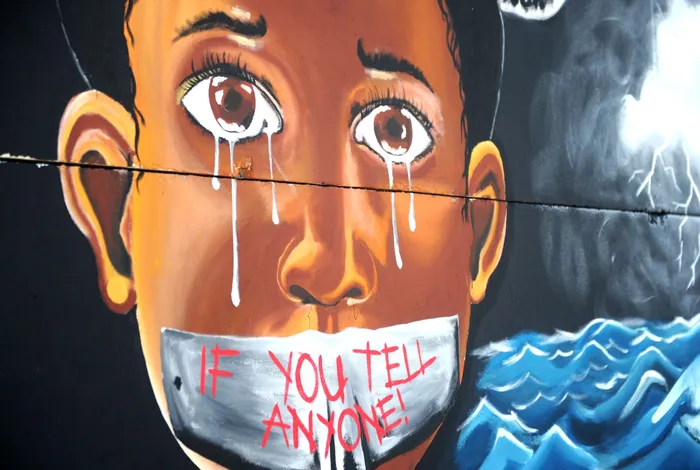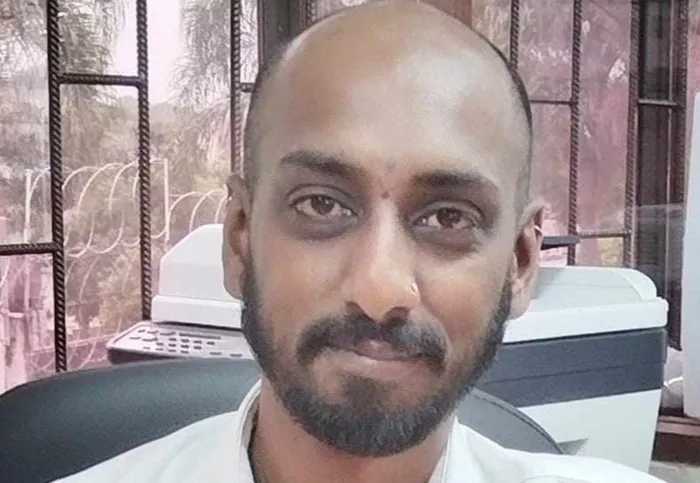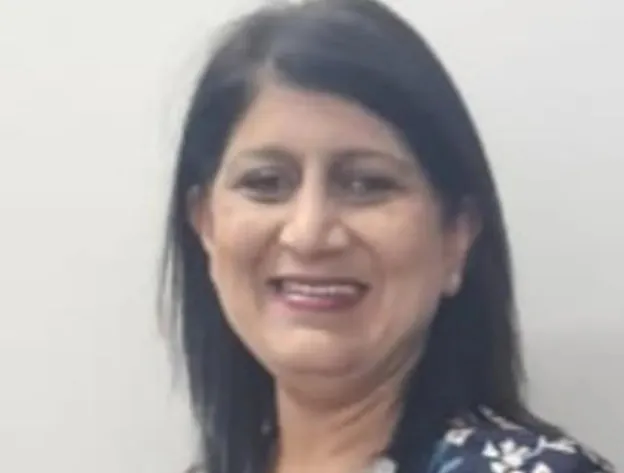A call to address child abuse in SA: they are being beaten, burnt, and neglected
VULNERABLE CHILDREN

dfd
Image: Ayanda Ndamane/Independent Media
Following the tragic death of a four-year-old girl in Eldorado Park, concerns about rising child abuse cases in the country have intensified. Child welfare organisations discuss the alarming statistics and call for stronger protective measures for vulnerable children.
THE ALLEGED brutal assault and rape of four-year-old girl by her father, has sparked concerns about the rapidly increasing cases of children being abuse at the hands of those who are meant to protect them.
The story of the little girl from Eldorado Park, south of Johannesburg, who later died in hospital, went viral on social media after her screams for help were captured in a recording - by a neighbour, as they stood outside the child’s home waiting for police to arrive last Wednesday evening.
In the recording, the girl's cries seemingly get louder each time she is believed to have been hit. Through her muffled words, she can be heard saying 'mummy' and 'help me'.
Lieutenant Colonel Mavela Masondo, a Gauteng police spokesperson, said police responded to a complaint of a father physically abusing his child on August 6.
He said on their arrival at the scene, the officers were pointed to a backyard shack that was closed.
“Upon entering, police found a man with a little boy and a little girl. They noticed that the girl who was sleeping in the bed had head injuries, bruises and a swollen eye. The man who introduced himself as the father of the children could not give a clear explanation about what happened to the girl.”
Masondo said the father was arrested and the girl was rushed to a nearby medical care centre for treatment, where she later died.
The 31-year-old man, who has since been charged with murder and rape appeared in the Protea Magistrate's Court last week. The girl's mother has also been arrested for failing to protect the child and defeating the ends of justice. They are expected back in court this week.
Reaction
Adeshini Naicker, the director of Childline in KwaZulu-Natal, said they continued to see a concerning number of such cases, where children are harmed by those meant to protect them.

Adeshini Naicker
Image: File
“Abuse within the home, especially by a parent, not only causes severe physical and emotional trauma but also breaks the trust that is vital for a child’s development. These incidents highlight the urgent need for stronger community vigilance, better reporting mechanisms, and continuous support services for survivors,” she said.
She said their helpline received hundreds of calls related to neglect and abuse, both physical and emotional, every month.
“Some incidents involve extreme violence such as children being beaten with belts, sticks, electrical cords, or kitchen utensils. We have seen burns from boiling water and hot pots, injuries that require hospital care.
“Neglect is another silent form of abuse, which includes children being sent to school hungry, without proper clothing, or denied the ability to bathe. These are not minor cases, they cause lasting physical and psychological scars,” she said.
Naicker said children often say they were abused for reasons like poor school performance, not doing chores, or “talking back.”
“In reality, most incidents stem from caregiver stress, poverty, substance abuse, or relationship problems, not the child’s behaviour. Sadly, many children believe they deserve the abuse, which adds to the trauma.”
Naicker added that there was a need for stronger enforcement and harsher sentences for serious child abuse cases.
“The law must send a clear message that abuse will not be tolerated. In addition, the worst thing anyone can do is stay silent. If you suspect abuse, report it immediately. One call can save a life.”

Pranashen Pillay.
Image: Supplied
Pranashen Pillay, director of Child Welfare Chatsworth, said the alleged assault, rape and murder of the girl, echoed similar incidents which occurred in the community.
He said on average, they received between 15 and 30 new referrals of child abuse per month.
“We are concerned at the continued rise in cases of child abuse, particularly those that tragically result in the death or long-term trauma of children. Many cases involve mothers, fathers, grandparents, step-parents, or guardians. We have documented cases where children were beaten with objects such as belts, hangers, broomsticks, or electrical cords; burnt with cigarettes or hot water; starved or denied food as a form of punishment.
“There have also been cases of children being locked in rooms, left alone for long hours, or forced to sleep outside as punishment. Other types of abuse include children being verbally and emotionally degraded. They are told that they are ‘useless’ or ‘a burden’,” he said.
Pillay said the abuse also left both visible and invisible scars.
“We have seen cases of children with fractured limbs, head injuries, and severe emotional withdrawal. Some children even attempt self-harm due to prolonged exposure to such trauma.”
Pillay said during interviews with children, various reasons emerged as to why they had been abused.
“The most common reasons given for their abuse include, ‘I didn’t clean properly’, ‘I made too much noise’, ‘I asked for food’, ‘She was angry because my father didn’t send money’, or ‘They say I remind them of someone they hate’.
“These chilling explanations reveal that the abuse often has little to do with the child’s behaviour and more with the adult’s inability to cope or regulate their own emotional and psychological states,” he said.
Pillay said since the beginning of the year there had been 12 children who required hospitalisation due to severe neglect.
“There were also eight cases of severe physical abuse by significant others in the child’s life that were investigated and confirmed. However, these numbers don’t include all allegations, but only confirmed cases.”
Pillay added that they had also identified hotspot areas in the area were physical and sexual abuse of children commonly occur.
“We have reports of abuse in the informal settlements of Chatsworth such as Bottlebrush, Lusaka, Welbedacht East, and Khokhoba, whereas residential areas noted for a high prevalence of sexual and physical abuse are Westcliff, Bayview, Montford and Arena Park.”
Pillay said some of the cases have been devastating.
“In one case, a three-year-old was dead on arrival at a local hospital. There was evidence of severe sexual abuse and physical injuries which caused her death. These were allegedly perpetrated by the mother over a three-week period in full view of her partner, his entire family and a pastor. To date the parents of the child roam free in the community.”
Pillay said the society worked with various stakeholders including social workers, statutory officers, and psychologists to investigate abuse allegations and take swift action when necessary.
He added that harsher sentences need to be consistently imposed on child abusers.
“Unfortunately, only an embarrassing fraction of cases reported actually proceed to prosecution. We strongly believe that the justice system must send a clear message that child abuse will not be tolerated. At current, an individual found guilty of raping an infant may be reintegrated into the community within four years.”

Jo Moodley
Image: Supplied
Jo Moodley, the social worker manager and general manager at Tongaat Child and Family Welfare Society, said the issue of children being abused at the hands of those they trust and rely on for protection was a rapidly growing concern.
“It is currently a very sad situation in most of our communities. On average, we have at least two children every week that we consider removing from their parents.
“Recently, there have been cases of fathers sexually abusing their own daughters, which is such a heinous crime being committed right under the noses of families and our community. This, in itself, shows just how skewed family relationships have become, and it seems that people seem not to be able to differentiate right from wrong anymore, or maybe the issue of sanity comes into question here,” she said.
Moodley said they had come across many types and forms of child abuse.
“Children are presented at school with cuts, scrapes, bruises, belt marks, cigarette burns, and welts, as well as in some instances, malnourished. We are called in and most of these children require immediate medical attention. We have even had cases of death of children by boiling water.”
Moodley said in cases of neglect, the society worked with the parents to try to remedy the situation and assist them with coping skills.
“However, when it is severe abuse, the case often goes to court and the child is removed to a safer environment. Unfortunately, in South Africa, the justice system is not always on the side of the minor child and laws are just not strong enough, which results in many people getting away with serious acts of child abuse.”

Aroona Chetty
Image: Supplied
Aroona Chetty, director of Phoenix Child Welfare, said child abuse continued to be a growing concern within the community.
“A significant number of children are being raised in single-parent households, most often under the care of their mothers. Recently, there has been a noticeable rise in drug-related incidents, with an increasing number of mothers leaving their children in the care of grandparents. Due to substance abuse issues, many of these mothers are unable to provide the necessary care and support their children need.”
Chetty said they received an average of two allegations of child abuse per day which required investigation.
“We frequently encounter cases where parents are willfully neglecting their children. Many children are found living in unhygienic conditions and, at times, are not provided with adequate meals or educational support. Often, parents prioritise their own needs, especially when substance and alcohol abuse are contributing factors, resulting in children not being given the attention and care they require.
“Additionally, we encounter families with a large number of children, where financial pressures and unemployment make it difficult to meet basic needs. It is common to see households with more than five children, where the family’s income is insufficient to sustain them adequately,” she said.
Chetty said there was a growing need for more proactive and comprehensive education on the different types of abuse.
“Children should be regularly exposed to educational content, including age-appropriate television programmes that promote mental well-being and teach them how to protect themselves. It is equally important that children learn to recognise abuse and know where to seek help.”
Chetty added that it often feels like no more can be done to “punish” perpetrators of child abuse, due to delays in the justice system.
“While there have been cases where parents received life sentences for child abuse, the process can be slow and frustrating.
“Furthermore, currently only sexual offenders are required to be added to the registries for child offenders. We advocate for all individuals convicted of child abuse not just those involved in sexual offences to be included in these registries, ensuring greater accountability and protection for children,” she said.
Chetty added that reporting suspected child abuse was crucial.
“Community members have multiple avenues to do so. In addition, according to the Children’s Act 37 of 2005, everyone has a legal responsibility and obligation to report any suspected cases of child abuse. It truly takes a village to raise a child. Every child is our child, and we all share the responsibility to protect and nurture them.”
To report child abuse
- Child Welfare Chatsworth: 031 403 1256
- Tongaat Child and Family Welfare: 032 944 1514
- Phoenix Child Welfare: 031 500 3671
- Childline KZN: 116
- Department of Social Development KZN: 031 500 1108
- SAPS: 10111
Related Topics: